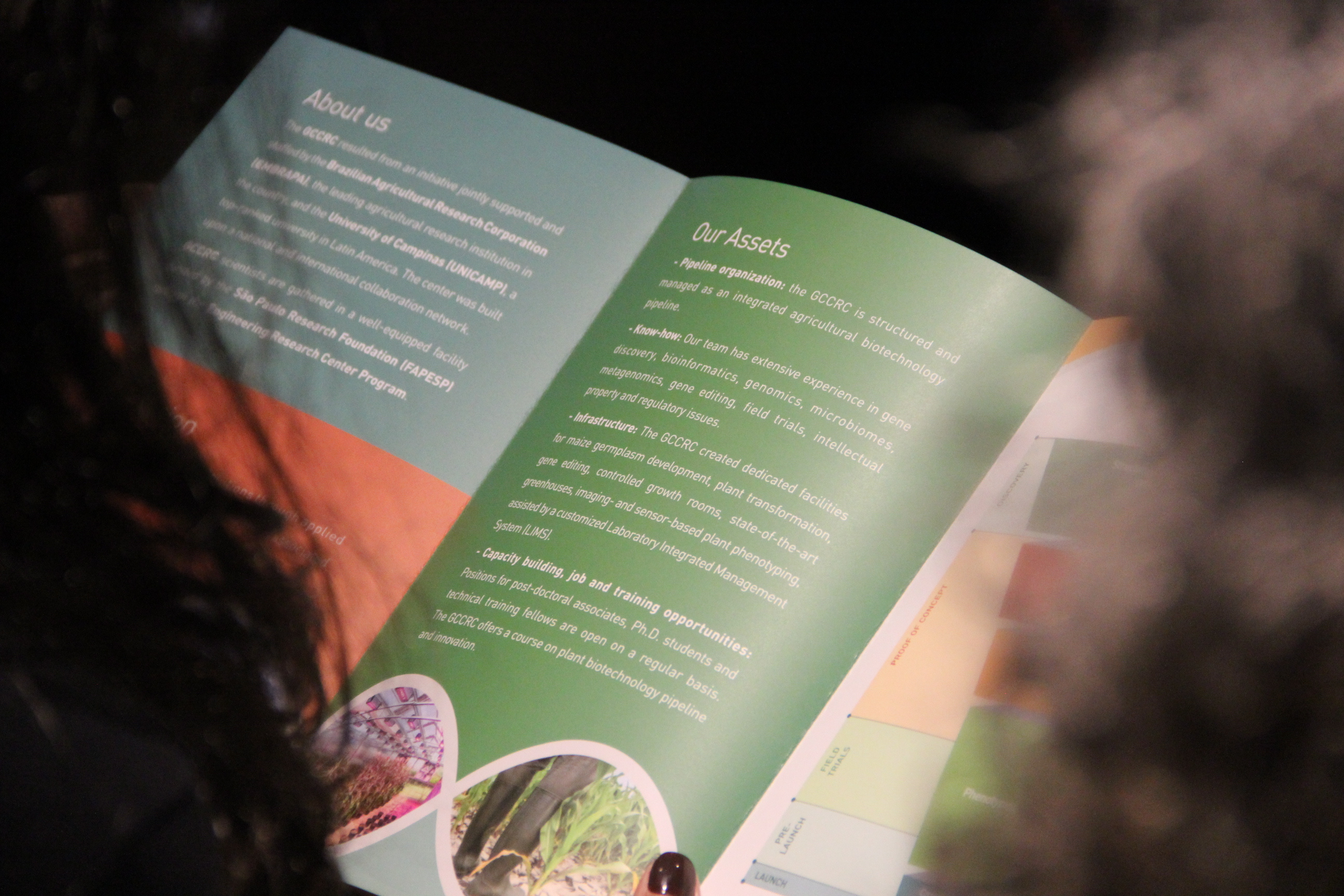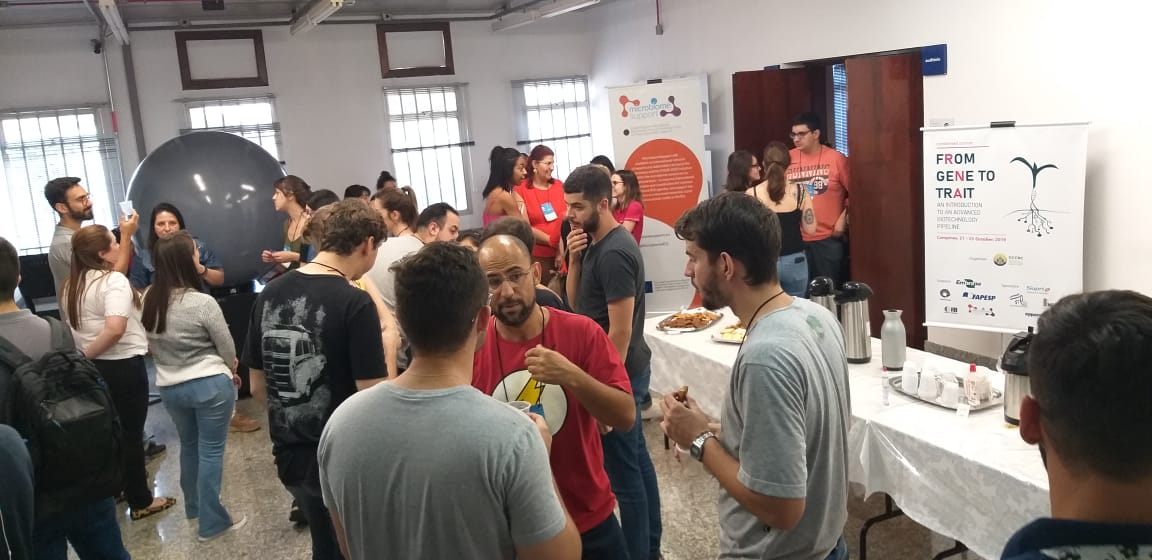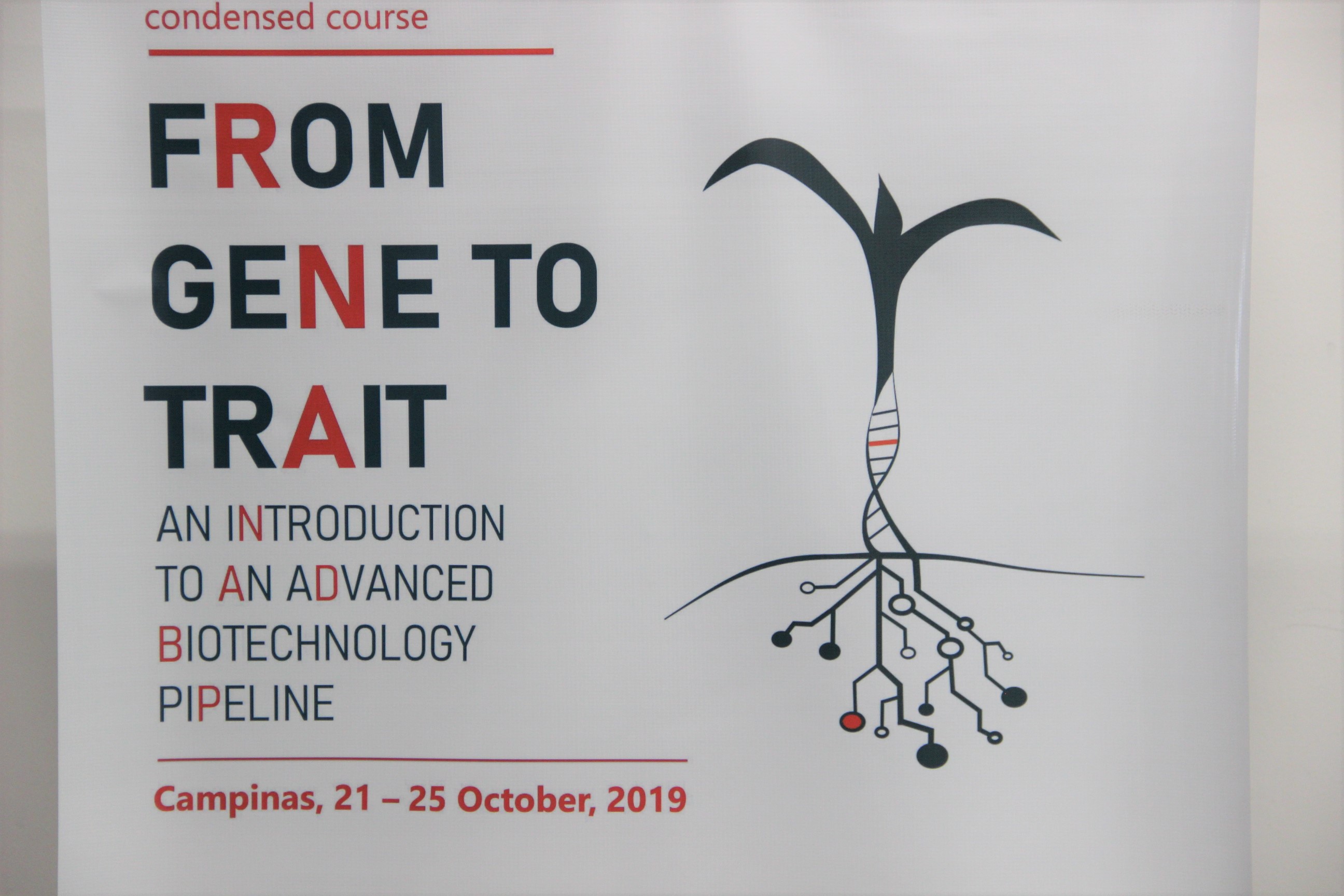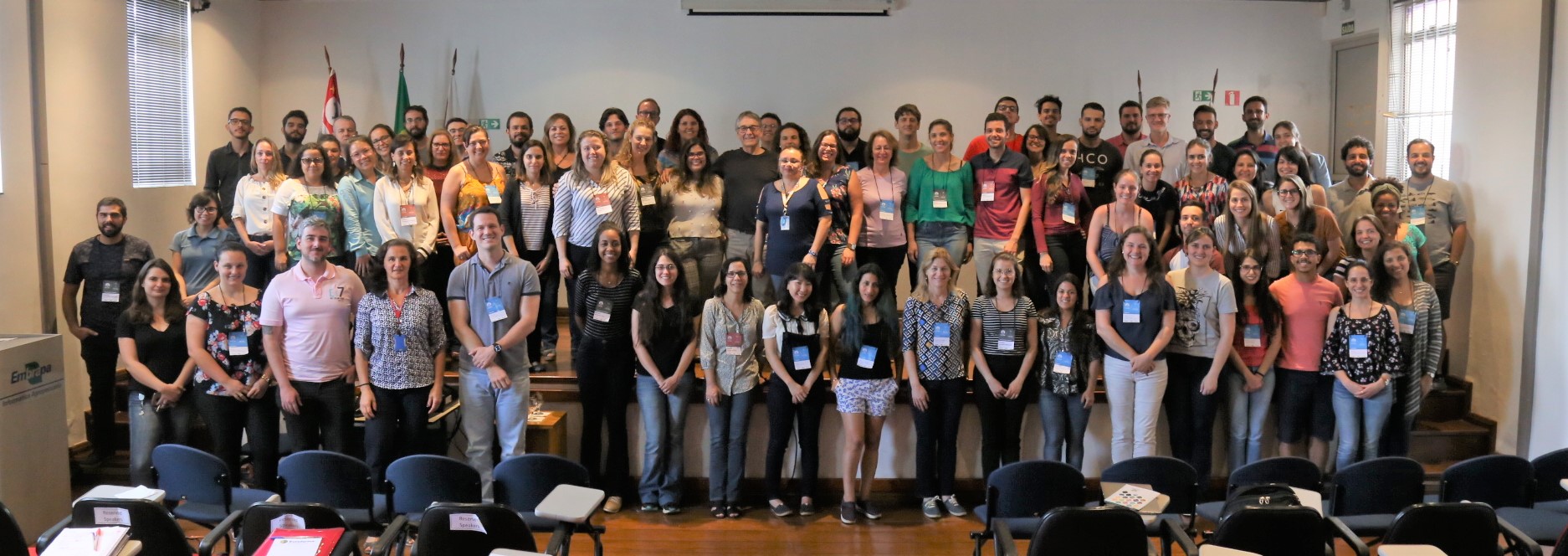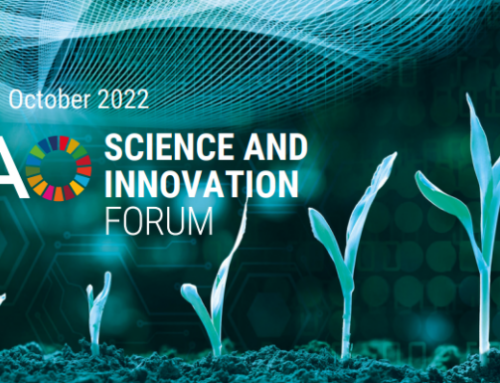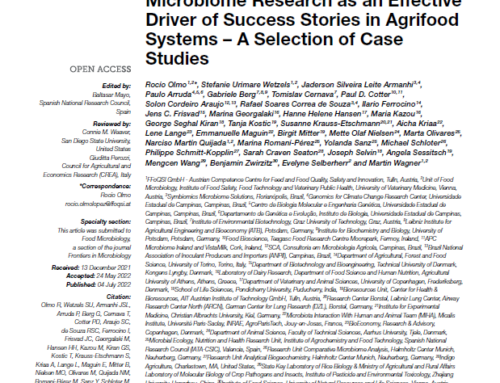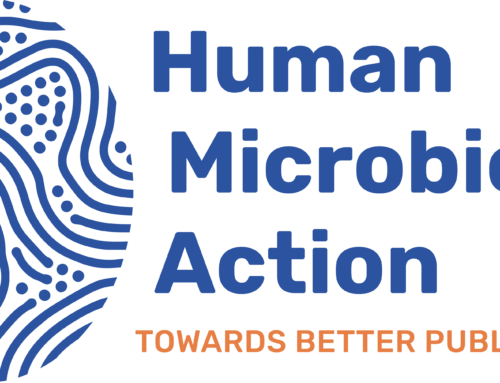By Paula Drummond – GCCRC
The second edition of the course brought together graduate students and professionals working in the biotechnological area.
“To catch up on the novel and emerging approaches in a biotechnological pipeline”, this was the main purpose of over 110 participants of the second edition of the “From Gene to Trait” course. The event was held in Campinas, São Paulo (Brazil), from October 21 to 25, and organized by the Genomics for Climate Change Research Center. During five full days, the participants went through major plant biotechnology research tools such as gene discovery using bioinformatics, transcriptomic, metagenomics, microorganism culture collections, inoculants, gene editing, introduction to regulatory framework and intellectual property.
Invited speakers, like Dr. Stephen Richards (University of California – Davis, USA) and Dr. Lauren Pauwels (VIB and Ghent University, Belgium), divided the program with experts from the University of Campinas (Unicamp), Brazilian Agricultural research Corporation (Embrapa), Center for Nuclear Energy in Agriculture (CENA / USP), the Federal University of Lavras (UFLA) and biotechnology companies such as LP Sementes, Bayer, i9Pi, Sugarcane Technology Center (CTC). In total, the course had 27 speakers from 10 organizations.
The target audience of the From Gene to Trait course was undergraduate and graduate students, as well as professionals from companies working in the topics of agricultural biotechnology. The course was free of charge.
The GCCRC mission is the creation of biotechnological solutions through applied genomics for the adaptation of crops to stresses associated with climate change. It resulted from an initiative jointly supported and staffed by the Brazilian Agricultural Research Corporation (EMBRAPA) and the University of Campinas (UNICAMP). GCCRC is funded by the São Paulo Research Foundation (FAPESP) and supported by the Microbiome Support.


